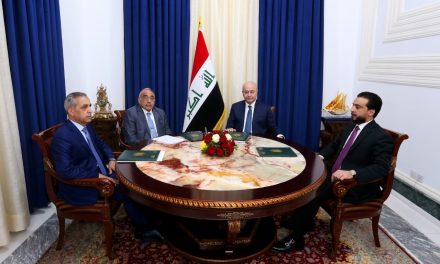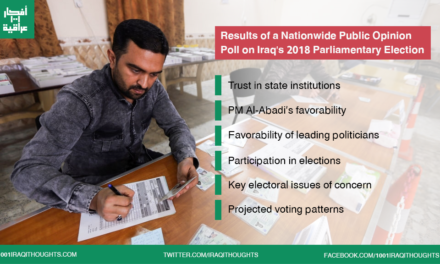In a country where life revolves around family, like Iraq, rising divorce rates are a concerning development. One of the causes behind divorce in Iraq, and the region more broadly, has to do with the taboo of marriage counselling. Another potential cause is social media, including online harassment and addiction. Awareness of the negative side effects of social media should be pushed by the Iraqi government to help educate citizens to leading a healthier lifestyle and achieving a friendly environment at home.
Divorce rates in Iraq have risen to more than 73,000 divorces in 2022 and the numbers are increasing. Studies in Iraq have shown that children from single-parent households tend to have more psychological trauma and are more susceptible to drug abuse.
Iraqis often marry at a young age, and in the case of women, some are even young adults or teenagers. Their inexperience means young couples are unprepared for a life together, especially when they have not spent much time together before marriage. They then do not have the resources to address their marital problems, as seeking counselling is looked down upon in many communities across Iraq.
Iraqi society is highly conservative, especially outside urban centers, and divorced women are stigmatized. Social customs often disadvantage women when it comes to marriage and divorce. Marriage is one of the leading reasons why women leave their studies or work given the perception that men should be the earners, while women should take care of the household. Women who have not completed their education or leave work because of marriage are at a greater disadvantage than men when they divorce, as they struggle to provide for themselves later on. Their ability to earn an income becomes limited.
Another leading causes behind divorce is social media. “It is either me or WhatsApp,” said the wife to her husband in the United Arab Emirates (UAE), where 50% of divorces are caused by the use of social media. The husband chose WhatsApp over his wife, and they ended up getting divorced because of the husband’s excessive use of social media. This is worrying for Iraq, with around 75% of Iraqis using the internet, and over 25 million Iraqis spending time on social media. In fact, almost every person between the ages of 13 and 64 has some form of social media presence. Iraqis are spending more time online and struggle to balance their life between the real world and the virtual one.
Addictive social media use has also led to an increase in crimes including blackmail, harassment, murder, and fraud. Due to the lack of leisure facilities for young people in particular, they become susceptible to internet addiction, with many not able to focus on their studies or seek work because they have no drive to do so. Tens of divorce cases in Baghdad in 2022 mentioned the distance by a spouse due to excessive internet use. In some cases, this led to increased suspicions about marital infidelity and even to violence. Studies in Egypt, Kuwait, and the UAE, all countries which are similar to Iraqi socially show that internet addiction and social media use are the third largest cause of divorce and the cause of up to 60% of family disputes.
Without resorting to restricting internet access, the best possible solution is to educate society about the harms of excessive use of social media and not allocating time for the family. This includes encouraging protection for children from internet addiction and the need to limit screen time for children and adults. Programmes that offer social workers and counsellors are needed to address these issues and prevent them from getting worse. In addition, the government can provide more spaces and opportunities for youth to develop hobbies and pursue non-internet leisurely activities, like youth clubs and sports leagues. The Iraqi government should also normalize the use of marriage counselling to help resolve disputes like the use of social media disrupting relations. Iraqis already have many traumas from the past two decades of violence to heal from, preventing additional trauma should be a priority for the state and society.
This essay is part of a special series – Empowering Change in Iraq: Policy Recommendations for a New Era

Husham Firas Muhsin
Husham Firas Muhsin is a civil activist from Dhi Qar who works on social cohesion programs, youth development, and mentoring. He is a petroleum engineer and volunteers with several organisations to improve conditions and prospects for young people in Dhi Qar.










